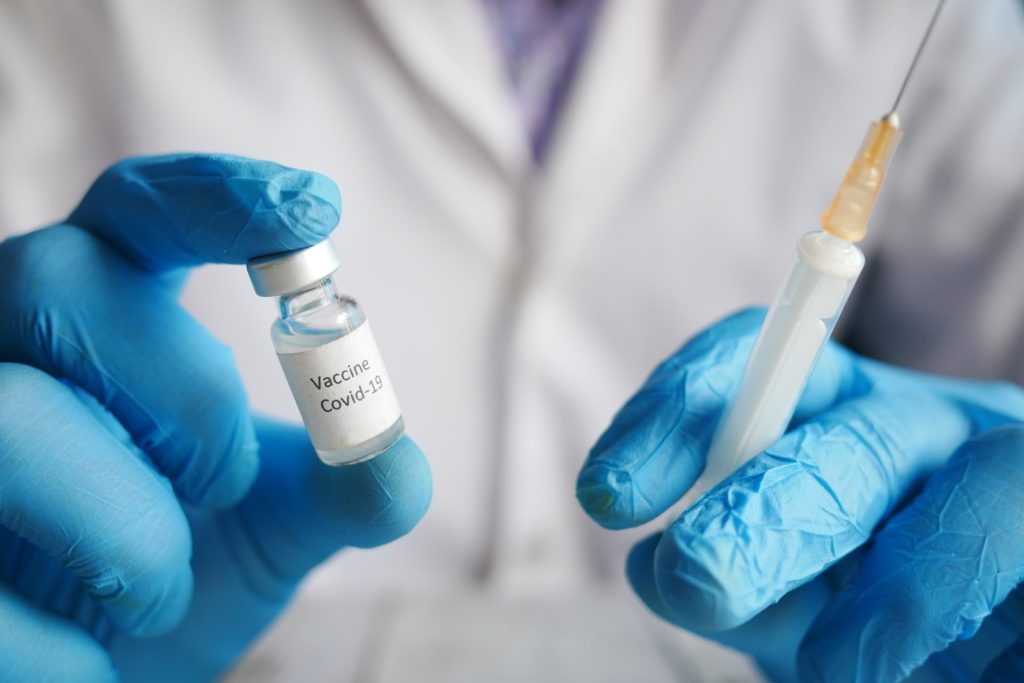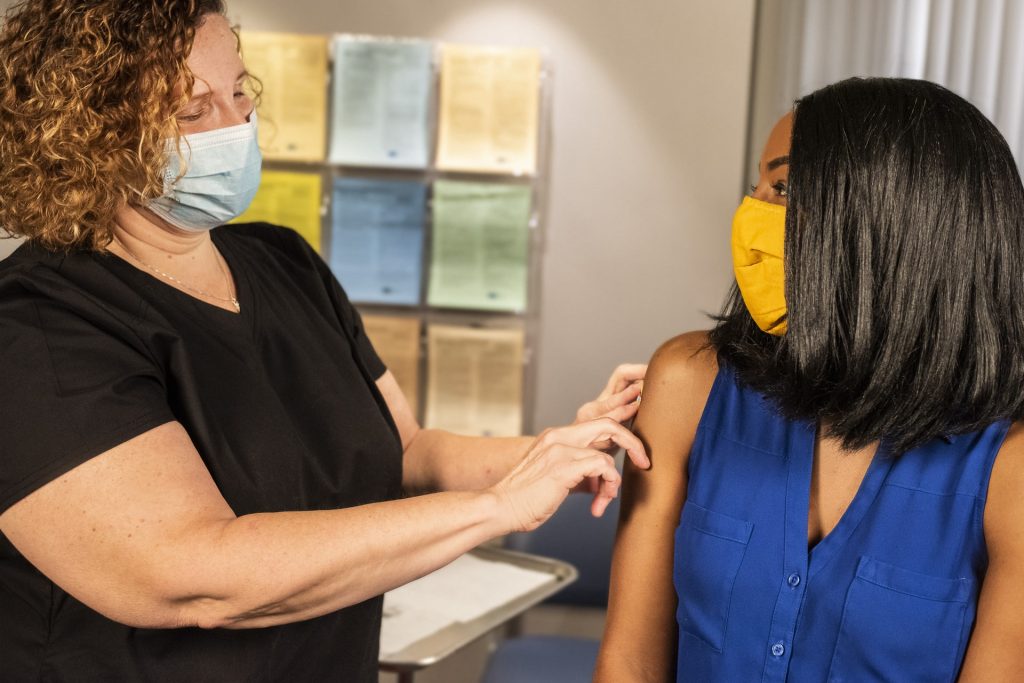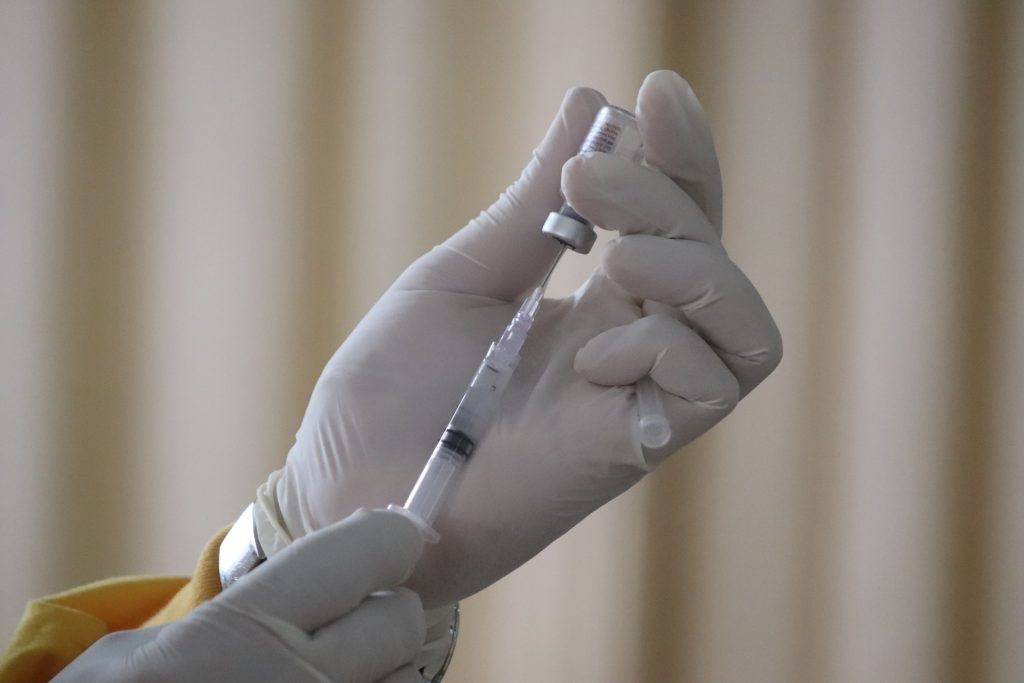Vaccine hesitancy is a serious and growing health issue. In 2019, the World Health Organization (WHO) listed vaccine hesitancy as one of the top 10 threats to global health. Vaccine hesitancy is when people are reluctant or unwilling to get their vaccines. This can be for various reasons, including mistrust of the government, misinformation, and personal beliefs.
The COVID-19 pandemic showed that the anti-vaccine movement is a global problem. In countries like the United States, France, and Italy, there have been protests against mandatory vaccination. Even after two years, the world is still struggling to get enough people vaccinated against the COVID-19 virus. In the US, polling data suggests that about 15% of adults remain unvaccinated. And people continue to hold doubts about vaccines in general.

What Causes Vaccine Hesitancy?
Why the concern over vaccination? Here are a few causes of vaccine hesitancy.
1. Safety Issues
There are many reasons why people may be hesitant to get vaccines. About half of unvaccinated adults say they don’t get the vaccine due to safety concerns. One of the biggest safety concerns is the potential for side effects.
However, it’s important to remember that most people experience only mild side effects from vaccines, such as soreness at the injection site. Plus, the risks posed by the diseases that vaccines prevent are much greater than the risks posed by the vaccines themselves. For example, the measles virus is highly contagious and can cause serious health complications, including pneumonia and encephalitis. According to the CDC, one in five people who get measles will require hospitalization. By comparison, no deaths have been reported among healthy individuals who have received the measles vaccine. The CDC reported that from 2008 to 2018, the measles vaccination prevented an estimated 23.2 million deaths worldwide.
Another safety concern is the possible link between vaccines and autism. This claim started with a now-retracted paper published in 1998. Since then, numerous studies have failed to find any link between vaccines and autism. The CDC states, after multiple studies, that there is no link!

The bottom line is that vaccines are safe and effective. While there are some risks with vaccination, the risks posed by the diseases that vaccines prevent far outweigh them. Vaccines have saved millions of lives and will continue to save more as we work towards eradicating deadly diseases.
Vaccines Haven’t Been Studied Enough
Another common concern among people who are hesitant to receive vaccines is that vaccines haven’t been studied enough. 42% of adults say they refuse to vaccinate because they don’t trust vaccines.
It’s true that some vaccines, such as the HPV vaccine, are relatively new and haven’t been studied for as long as other vaccines. However, all vaccines undergo extensive testing before they are approved for use. The HPV vaccine, for example, was tested in over 24,000 people before the FDA approved it.
After a vaccine is approved, it continues to be monitored for safety and effectiveness. The CDC’s Immunization Safety Office monitors vaccines for health concerns and researches vaccine-related issues.
People are also concerned about the ingredients in vaccines. However, all of the ingredients in vaccines have been extensively tested and are safe for use. For example, thimerosal is a preservative in certain vaccines. It’s been thoroughly studied and deemed safe for use in vaccinations.
Vaccines prevent death and complications caused by disease. They have been rigorously studied and are continuously regulated for safety concerns. There’s no reason to believe that vaccines are unsafe or ineffective.
Distrust in the Government
Another key reason why people may be hesitant to vaccinate is a general distrust of the government and other health institutions. In the US, 44% report mistrust of pharmaceutical companies as a reason for vaccine hesitancy.

This mistrust may be due to a variety of factors, such as the government’s handling of the opioid crisis or the Tuskegee syphilis experiment. Whatever the reason, this mistrust can lead people to believe that the government is hiding information about the risks of vaccines.
It’s important to remember that vaccines are one of the most extensively studied medical interventions. The government requires that all vaccines undergo rigorous testing before they approve them for use. After vaccine approval, researchers continue to monitor it for safety and effectiveness.
The Centers for Disease Control and Prevention (CDC) is one of the most trusted health institutions in the US. The CDC is an organization of experts whose goal is to protect public health. They’re constantly monitoring the safety of vaccines and researching any potential side effects. The CDC is a great resource for accurate, up-to-date information if you have any concerns about vaccination.
Misinformation and Conspiracy Theories
Social media has made it easy for people to share information, including misinformation about vaccines. There are a variety of conspiracy theories about vaccines, such as the theory that the HPV vaccine causes infertility or that vaccines are part of a government plot to control the population.
These theories are not based on any scientific evidence. In fact, a great deal of scientific evidence disproves these theories. However, they can be difficult to refute because they’re often emotional and based on personal stories. That’s why it’s crucial to get your information from trusted sources, like the CDC.
The CDC has certain pages dedicated to dispelling myths about vaccines. They also have a phone number (800-CDC-INFO) that you can call to speak to a healthcare professional about any concerns you may have.
The Bottom Line
Vaccine hesitancy is a problem around the world. As the anti-vaccination movement maintains its grip, it’s important to understand the reasons behind it.
If you have any questions or concerns about vaccines, don’t hesitate to get in touch with your healthcare provider or the CDC. They are an excellent resource for accurate, up-to-date information about vaccines.













